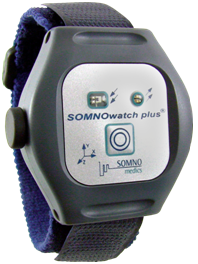
About SMRC
The Sleep Medicine and Research Center is a specialized center that provides comprehensive evaluation and treatment of the common sleep disorders in our community.
The center was initially founded at King Abdulaziz University Hospital in May 2011 and was expanded following its success, in April 2013 to accommodate a total of 4 rooms, fully equipped with the latest sleep medicine diagnostic and therapeutic equipments.
The center has a team including a sleep physician, technologists, nurses and researchers, as well as complete access to all medical expertise and facilities at King Abdulaziz University Hospital when needed. This ensures all patients get comprehensive and high quality care.
In addition to its diagnostic and therapeutic services, the center takes an active role in educating the public about sleep disorders through seminars and educational activities. Moreover, the center trains physicians and technologists in sleep medicine and has ongoing local research projects.
SMRC Services
Clinical Consultation and Management
Patients who have sleep complaints and wish to consult a sleep physician, and patients who are referred for sleep problems are first evaluated in the outpatient clinic. A medical history and complete sleep history is obtained from the patient, followed by a physical examination. The physician then decides whether to perform an overnight sleep study. If a sleep study is performed and a diagnosis is established, the patient meets with the physician to discuss the results and the treatment options. Options for treatment include the use of a continuous positive airway pressure machine, medication, and behavioral modification. If a consultation is needed from another medical specialty, a referral is made to the appropriate specialist. Patients who do not need a study are monitored to ensure an appropriate treatment plan.
Sleep Studies
Sleep studies are performed by the use of the latest diagnostic equipment. These tools non-invasively monitor the patient during sleep for breathing, heart, brain, and muscle activity.
A group of services are offered by the center
1. Full sleep study at the center.
Overnight sleep studies are performed at our center in quite, comfortable bedrooms that were designed to ensure patient privacy and comfort. The procedure is discussed with the patient when the study is scheduled. On the night of the study, the patient arrives at the center at around 8pm and leaves the next morning at around 7am. Each patient is observed closely throughout the study by our sleep technologists.

2. Portable home unattended study by either full polysomnography (type 2 device) or limited sleep study (polygraphy) (type 3 device).
In these studies, a sleep technologist or trained physician visits the patient at home to place the sleep electrodes. He or she then leaves the patient home without any monitoring throughout the study night. The polygraphy or type 3 device can only be used for patients without cardiopulmonary diseases.

3. Screening for sleep apnea and oxygen desaturation at night by using a type3 or 4 device.
This is a very simple study. It is used to assess the need for home oxygen at night for patients with chronic respiratory diseases. It can also be used to exclude sleep apnea for patients without cardiopulmonary disorders.
The patient or his caregiver picks up the device at our center and is trained how to fix the electrodes on the patient for the night of the study. The device is then fixed at home at night just before sleep time, and then removed the next morning upon wakening. The device is later returned to the center.

4. Measuring sleep efficiency and sleep rhythm by using “Actigraphy”.
Actigraphy ia a device that looks like a watch that uses either an activity monitor or a motion detector to record movement. Absence of activity or movements indicates sleep.
This is an important tool to document the sleep efficiency, sleep duration and pattern for individuals complaining of insomnia or excessive daytime sleepiness. The device can also help in establishing the etiology of insomnia or daytime sleepiness as in periodic leg movements or circadian rhythm disorders, for example.
